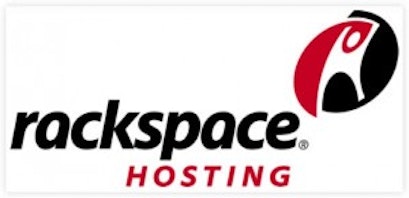

Investors need to evaluate the reasons why a stock is falling, and then determine if the downside is temporary.
Weak Outlook Provided
Aruba, which is a mobile networking solutions company, provided light guidance when the company reported quarterly results. Nine analysts responded by downgrading the stock. Reliant on the Bring Your Own Device (or BYOD) phenomenon for growth, Aruba earned $0.11 per share on sales of $147.1 million. This represents a revenue level that was below management expectations. While sales rose 12% from last year, it was down 5% from the previous quarter. Aruba blamed customers for shrinking the project size for enterprise wireless LAN deals. Geographically, Asia pulled back on spending.
ClearPass, a platform that is costing Aruba significant resources, promises to drive growth across Aruba’s product portfolio. Investors betting that Aruba will deliver on growth this year will be paying a forward P/E of 19.9. The bring-your-own-device trend at workplaces was cited as a growth driver for Aruba products.
Investors should note a few red flags. Sales and marketing expenses were $47.2 million (non-GAAP), representing 32.1% of sales. Last quarter, the expense-to-sales ratio was 30.1%. General and administrative costs also rose from $8.2 million to $9.9 million sequentially. This represented 6.7% of sales, compared to 5.3% in the previous quarter. If sales do not improve, Aruba will need to reduce headcount, which will bring about one-time charges for the company.
Weak Profit Margins a Bad Sign
Weak margins translate to a lower share price when it is revealed. Rackspace Hosting, Inc. (NYSE:RAX), which was founded in 1988, has nine data centers. Data centers are used to sell public and private cloud solutions for companies. This means that Rackspace Hosting, Inc. (NYSE:RAX) offers hosting for companies needing Red Hat, MySQL, or Microsoft Corporation (NASDAQ:MSFT)-based solutions. When Rackspace reported first-quarter earnings, EBITDA margins were weak. This means that competition is rising, and unless the company has new or unique products or services to offer, it could spell trouble. Rackspace faced a decline in net upgrades from customers. Existing enterprises customers also provided less new business for the company. Rackspace Hosting, Inc. (NYSE:RAX) cut prices to compete with Microsoft Corporation (NASDAQ:MSFT) and Google Inc (NASDAQ:GOOG). Very recently at Google’s I/O conference, the company signaled that it was boosting its cloud offerings, broadening its services, and lowering its relative prices.
The move by companies to move from hosting to cloud services should not hurt Rackspace Hosting, Inc. (NYSE:RAX), and the company could potentially win new deals, boosting sales in the quarters ahead.
New Management, Same Problems
Fusion-IO, Inc. (NYSE:FIO) is an example of a company whose leadership change hurt its share price. The company saw shares decline 23% when both its CEO and CMO were forced to leave. David Flynn and Rick White were founders of the company. Counting Facebook Inc (NASDAQ:FB) and Apple Inc. (NASDAQ:AAPL) as clients, Fusion-io reported a healthy quarter. Revenue was $87.7 million, while earnings were a loss of $0.03 per quarter.
Fundamentally, Fusion-IO, Inc. (NYSE:FIO) is facing competition for PCIe (PCI express). PCIe is a standard that is used to define the way boards connect with main system boards. The company does not have a large enough enterprise customer base, and is moving towards the 20nm (nanometer) NAND product. Shrinking the production to 20nm is costly, but it also saves company money once it is implemented.
On Wall Street, the company is winning “buy” recommendations. An analyst at UBS upgraded shares to a buy, citing quarterly results and a strong forecast. Fusion-io said that it expects the current quarter revenue will be $110 million, around $3 million higher than consensus.
Valuation Comparison:
The companies all have fairly high price/sales ratios. Liquidity is similar, while Rackspace Hosting, Inc. (NYSE:RAX) is the largest company, as measured by market capitalization:
| NAME | MKT CAP | AVG VOL | PRICE/SALES |
|---|---|---|---|
| Fusion-io | 1.40B | 4,033,190 | 3.34 |
| Rackspace Hosting | 5.25B | 2,451,800 | 3.96 |
| Aruba Networks (NASDAQ:ARUN) | 1.52B | 2,603,070 | 2.63 |
Source: Yahoo Finance
Foolish Bottom Line
Sometimes a company will go through a rough patch, dragging the share price lower as sellers exit their position. Fusion-io has risks related to new management, while Aruba and Rackspace Hosting, Inc. (NYSE:RAX) are facing higher competition. Investors should not expect much upside in any of these companies in the near-term. Another sell-off is unlikely, even if the general markets fall, too, since the bad news is already priced in. It would be ideal to add these stocks to the watch list for now. Looking for evidence that the business is improving would be suitable for conservative investors. Investors guessing shares have bottomed could start a position at current levels.
The article 3 Tech Stocks for Bottom Fishers originally appeared on Fool.com.
Chris is a member of The Motley Fool Blog Network — entries represent the personal opinion of the blogger and are not formally edited.
Copyright © 1995 – 2013 The Motley Fool, LLC. All rights reserved. The Motley Fool has a disclosure policy.

